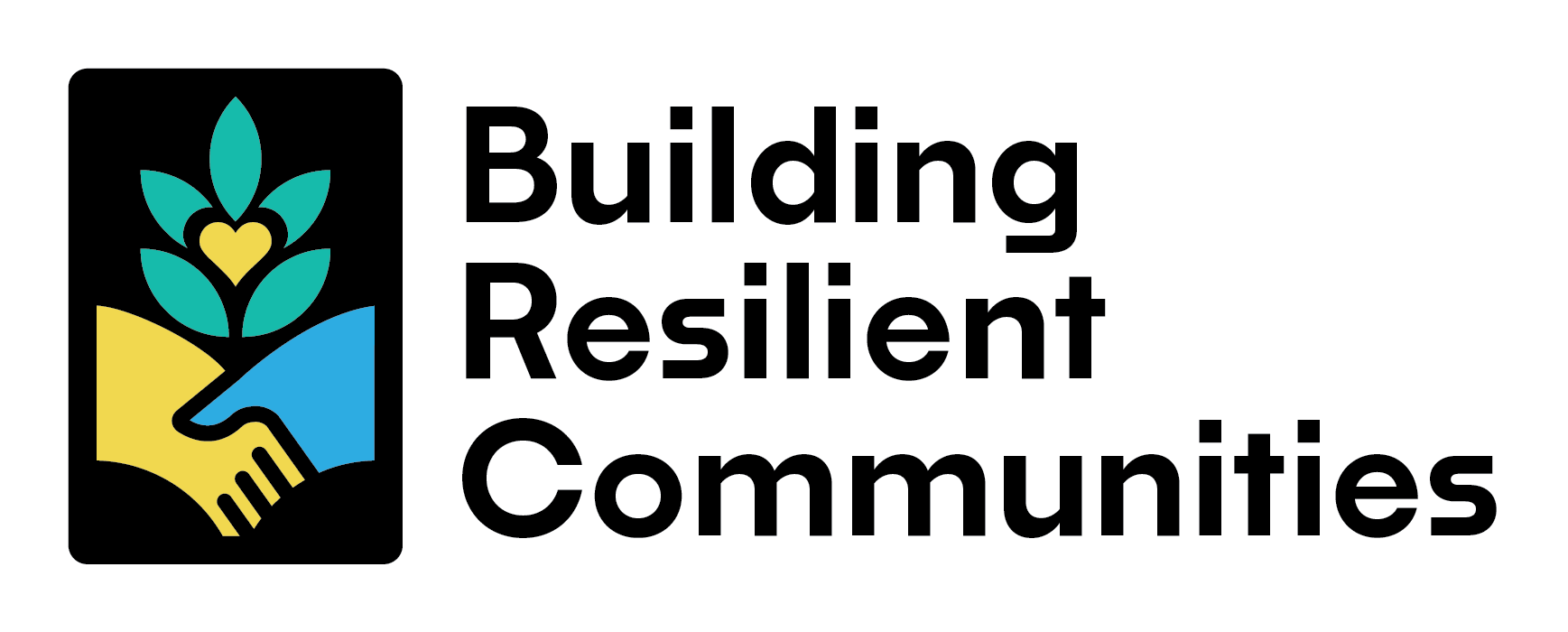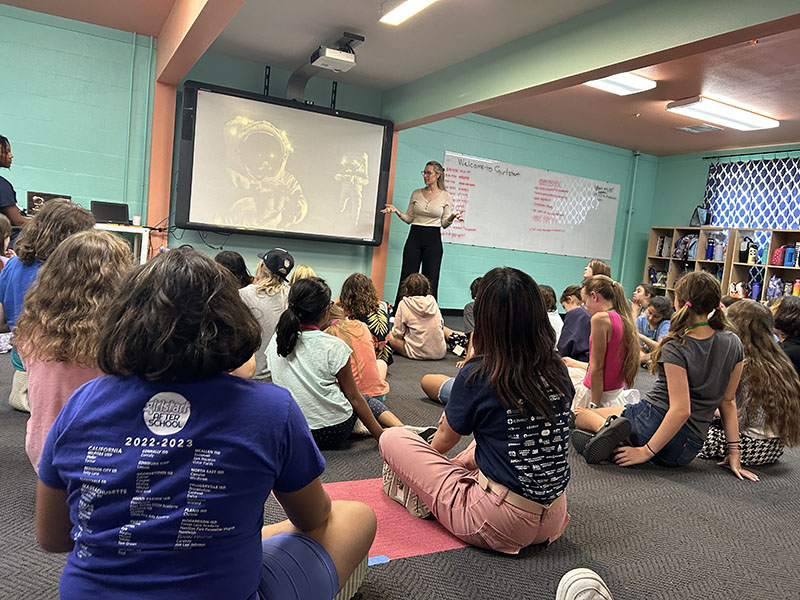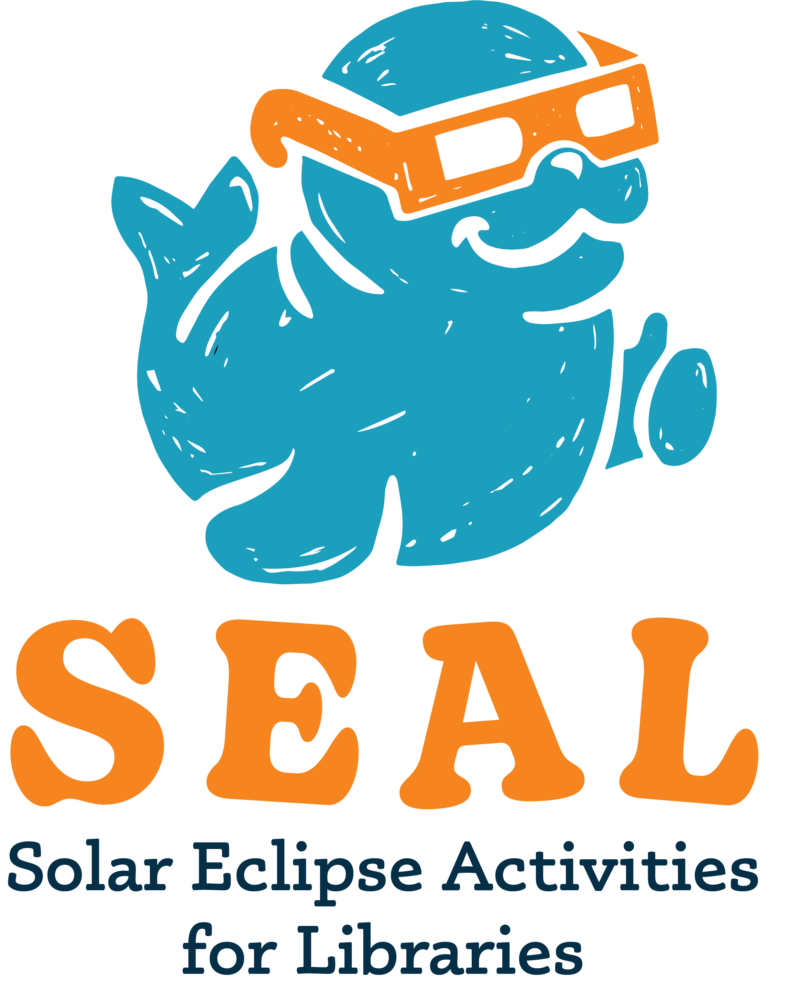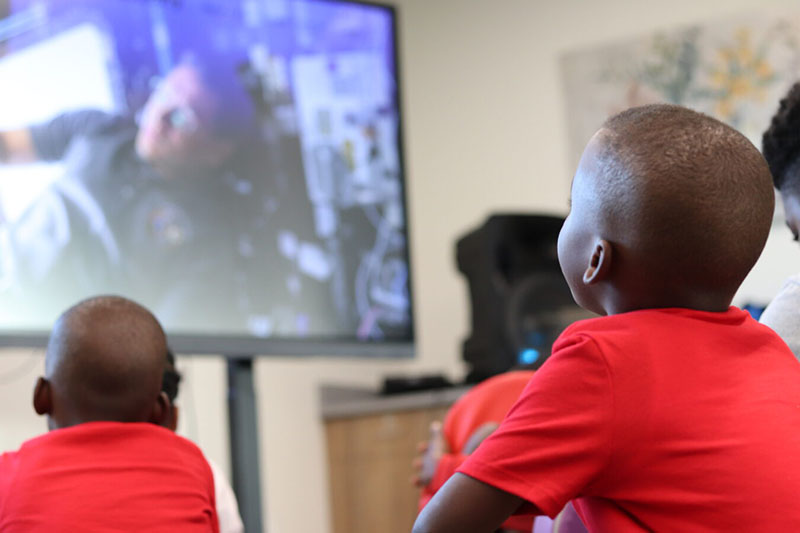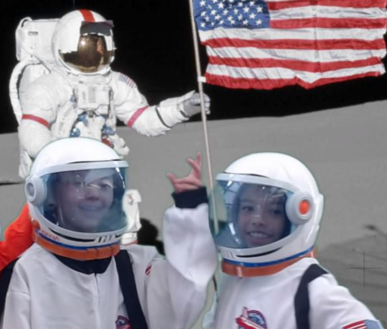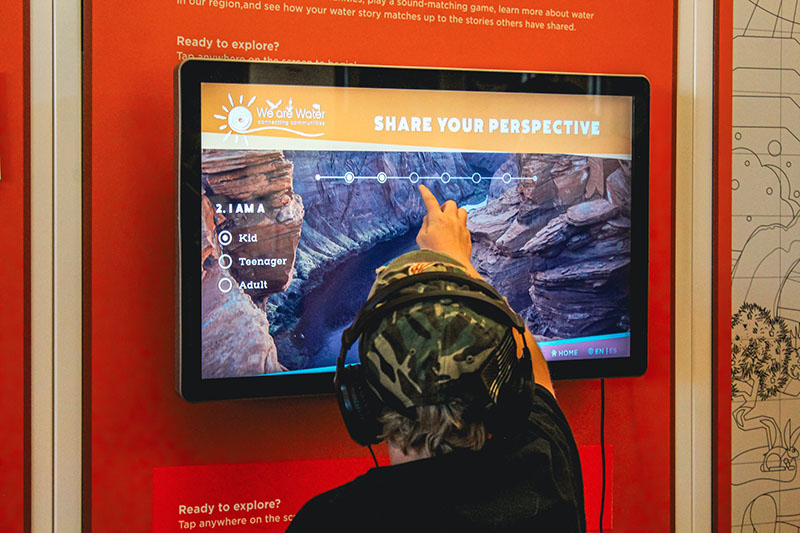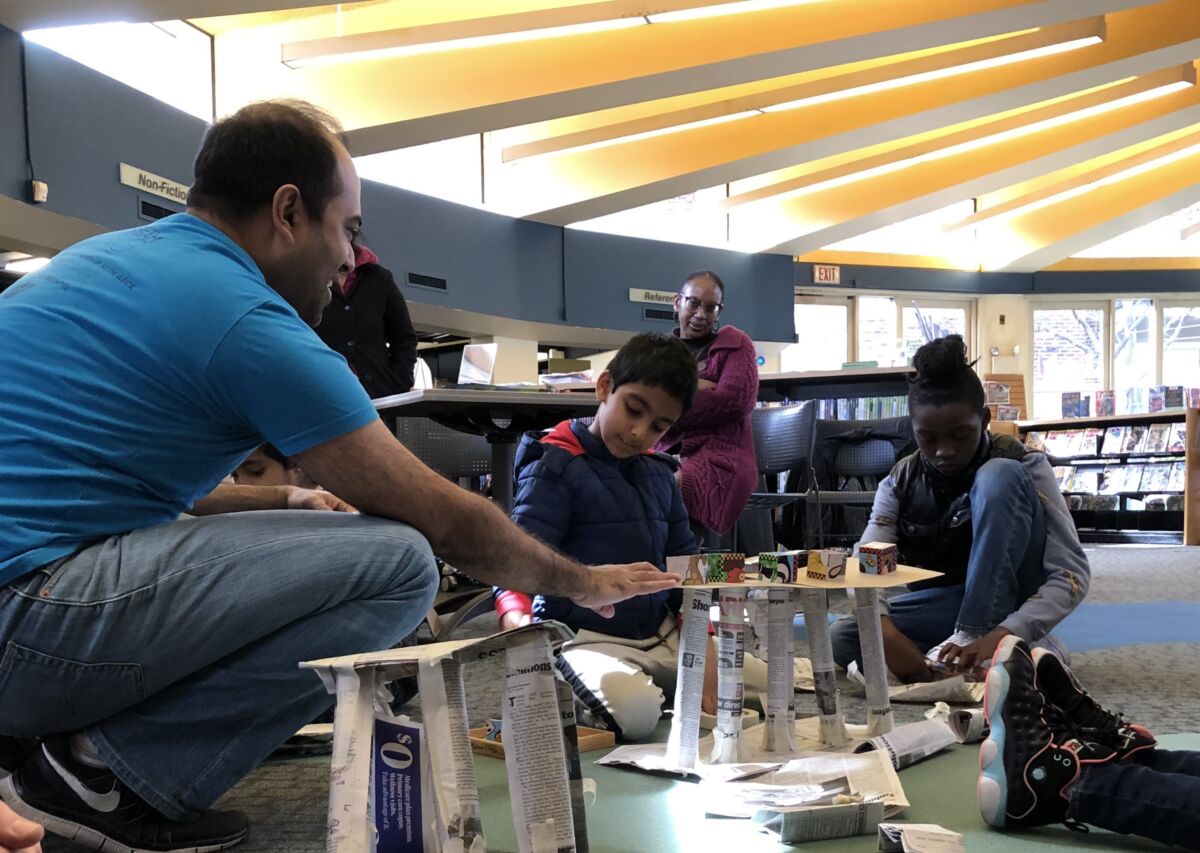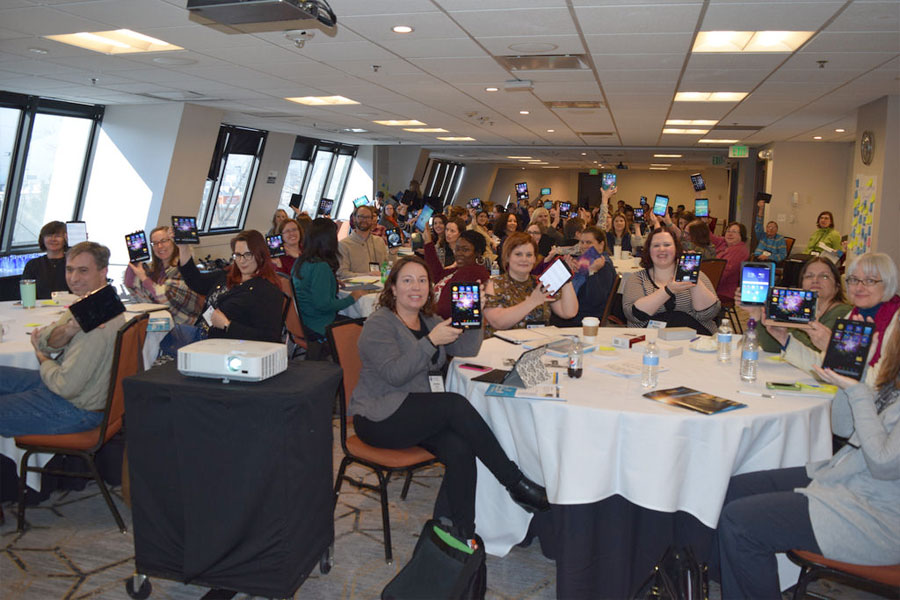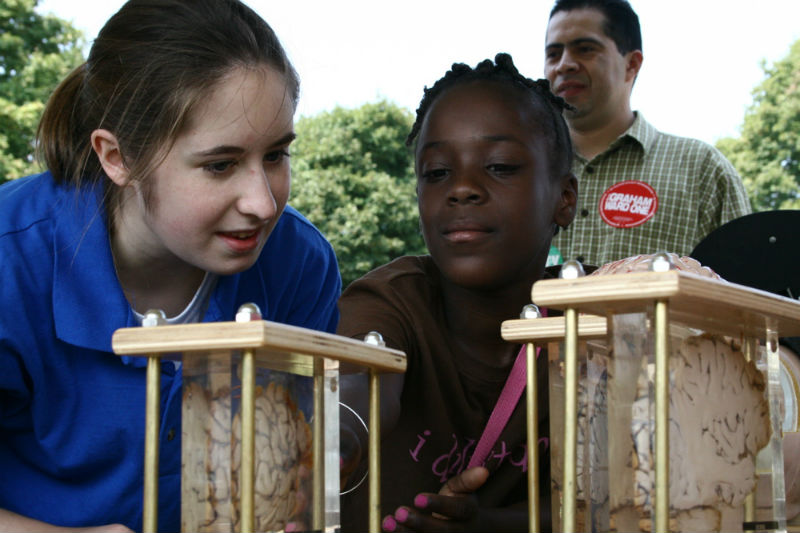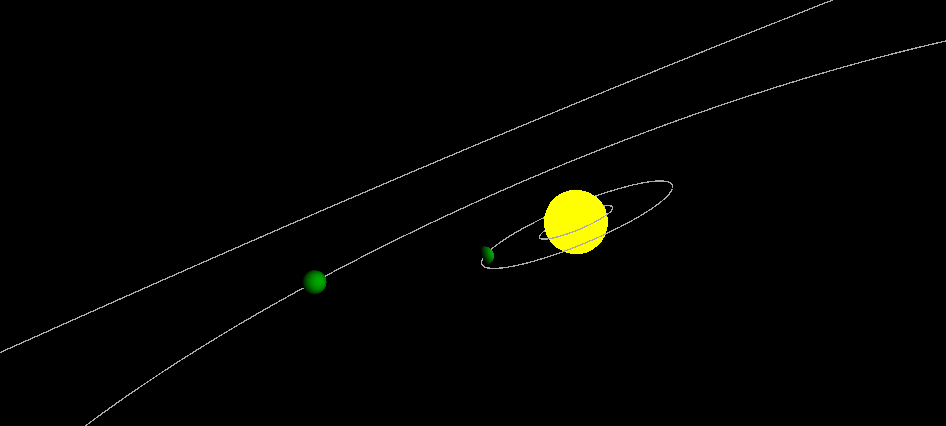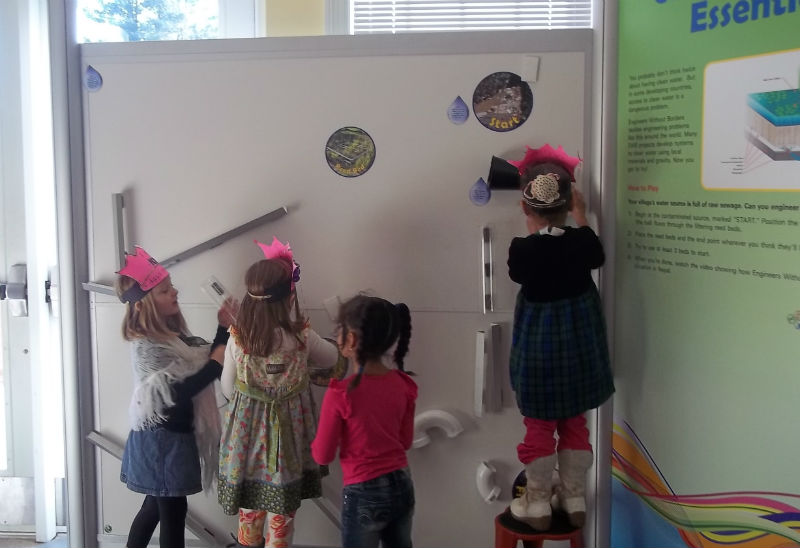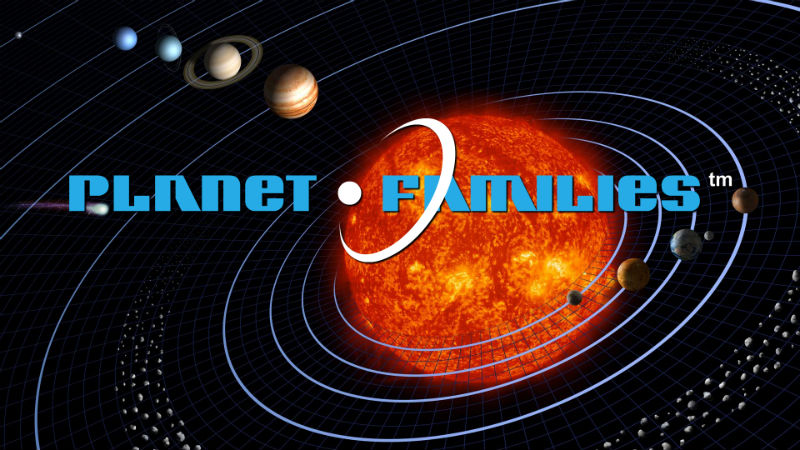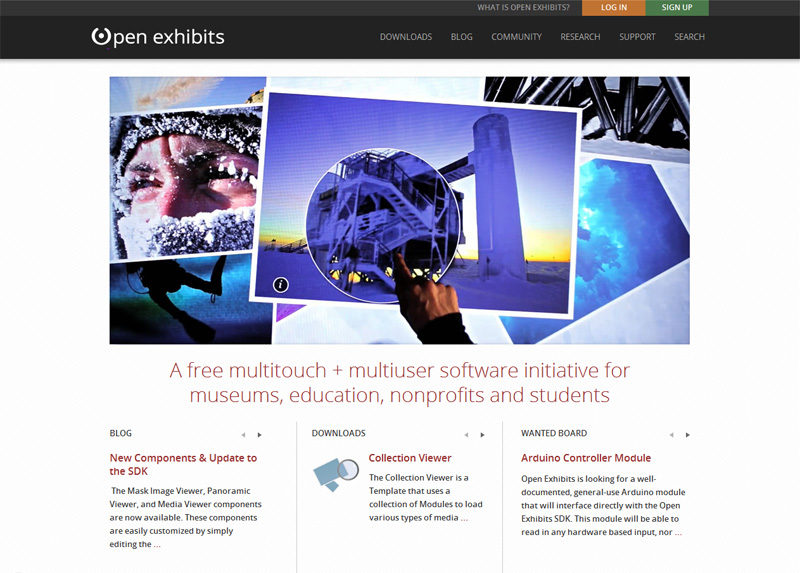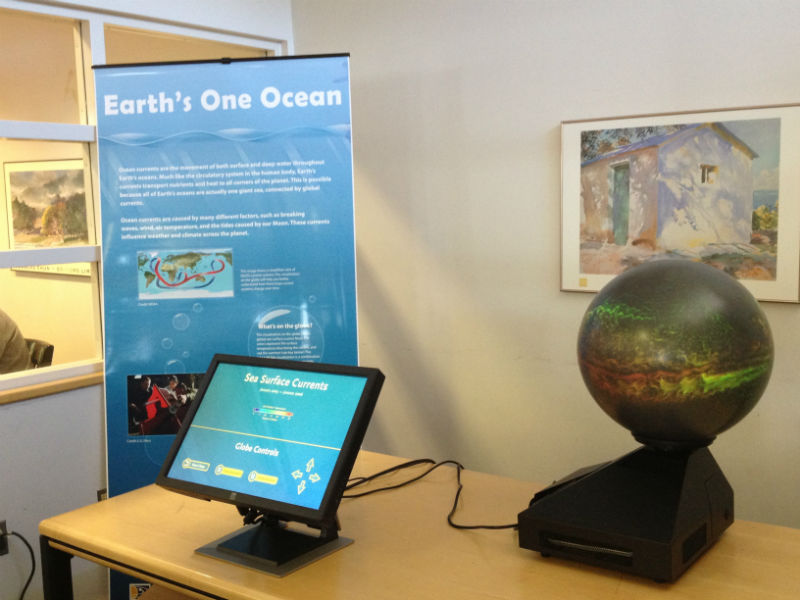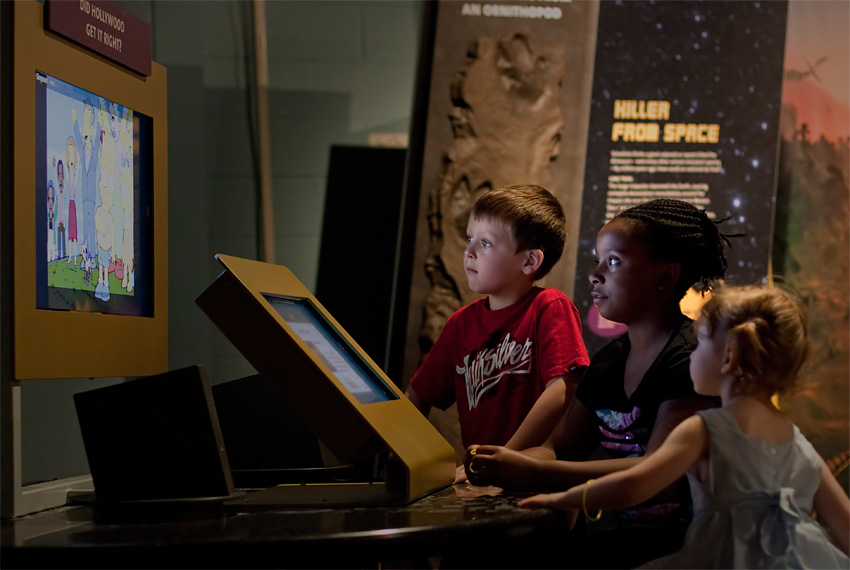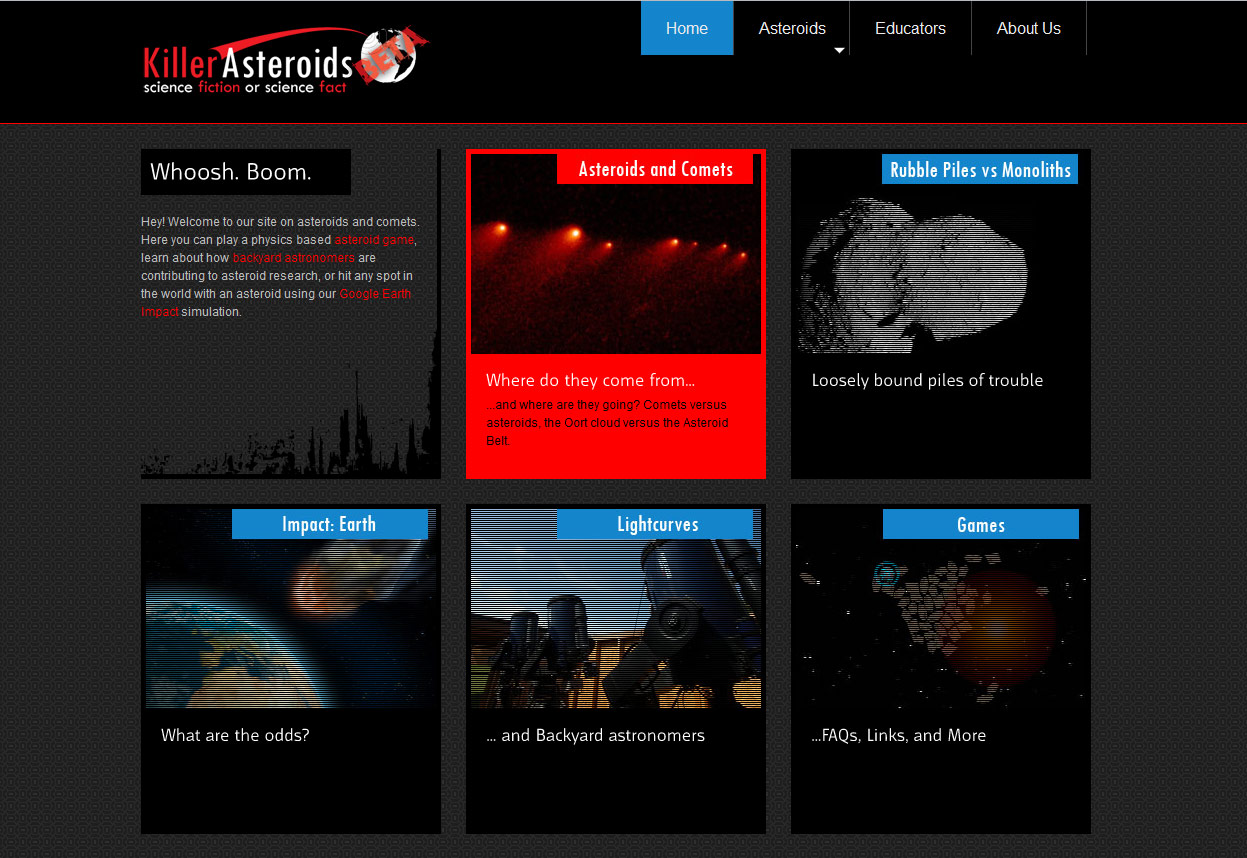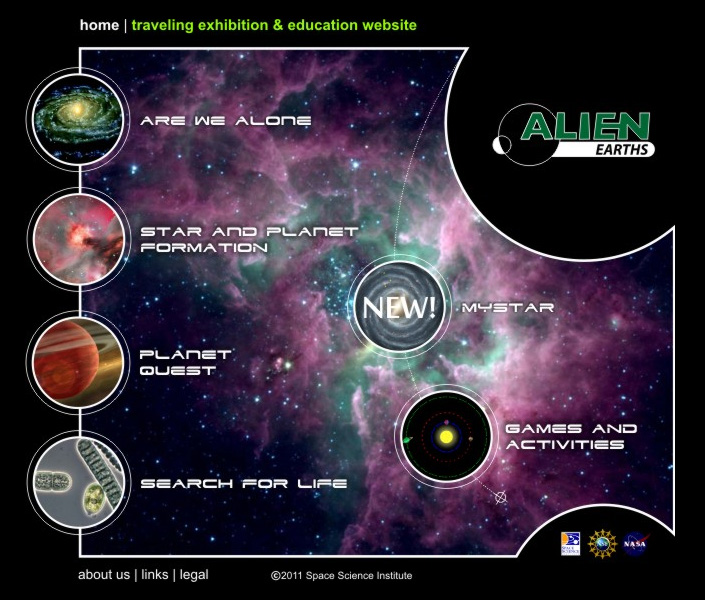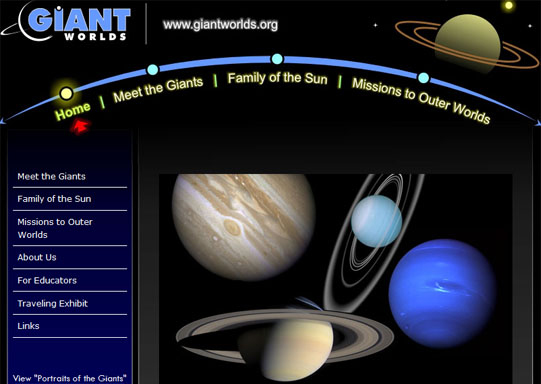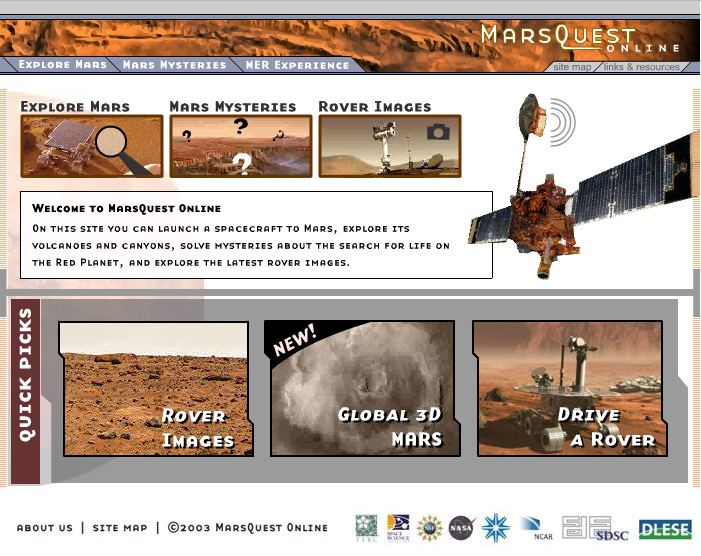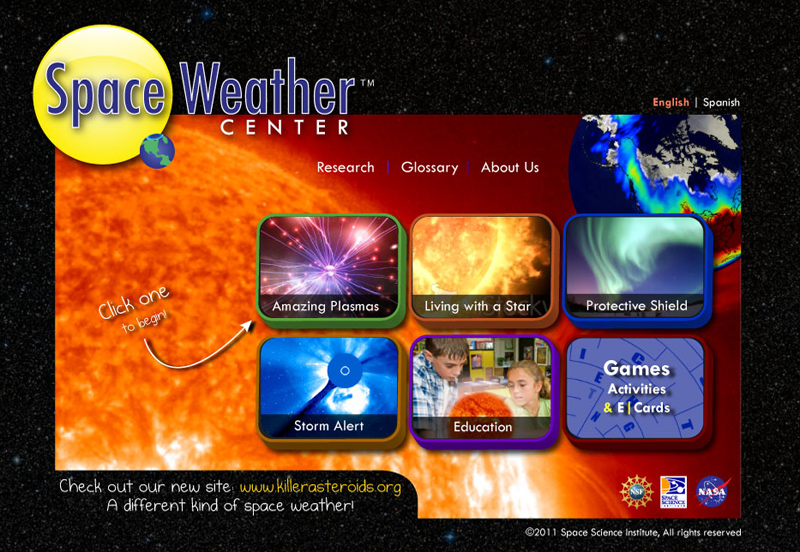Building Resilient Communities
The Building Resilient Communities Project: A National Symposium that Explores the Role of Public Libraries and Community-Based Organizations in Addressing Local Climate Impacts is funded by the National Science FoundationThe lead organization is the Space Science Institute; partner organizations are OCLC WebJunction, University of North Carolina Greensboro, and Interactive Learning Dynamics. Building Resilient Communities is a project of the STAR Library Education Network (STAR Net).
PI: Anne Holland
Funder(s): NSF
Start Date: 2023
NASA Inspires Futures for Tomorrow's Youth (NIFTY
The NIFTY project goal is to connect NASA STEM role models with youth-serving STEM programs for underrepresented youth (ages 9-14) with a critical fdocus on girls and other historically excluded genders in STEM, which includes cis girls, trans youth, gender non-conforming, and/or non-binary youth, youth of color, and their families.
PI: Katie Hessen
Funder(s): NASA Science Activation
Start Date: 2023
SEAL: Solar Eclipse Activities for Libraries
With funding from the Gordon and Betty Moore Foundation, the Space Science Institute, through its Solar Eclipse Activities for Libraries (SEAL) program distributed over six-million solar-viewing glasses to 14,000+ libraries, providing information and activities to share with library patrons. In addition, workshops for librarians are were held in nearly every US state and territory.
PI: Anne Holland
Funder(s): Gordon and Betty Moore Foundation, NASA, NSF
Start Date: 2022
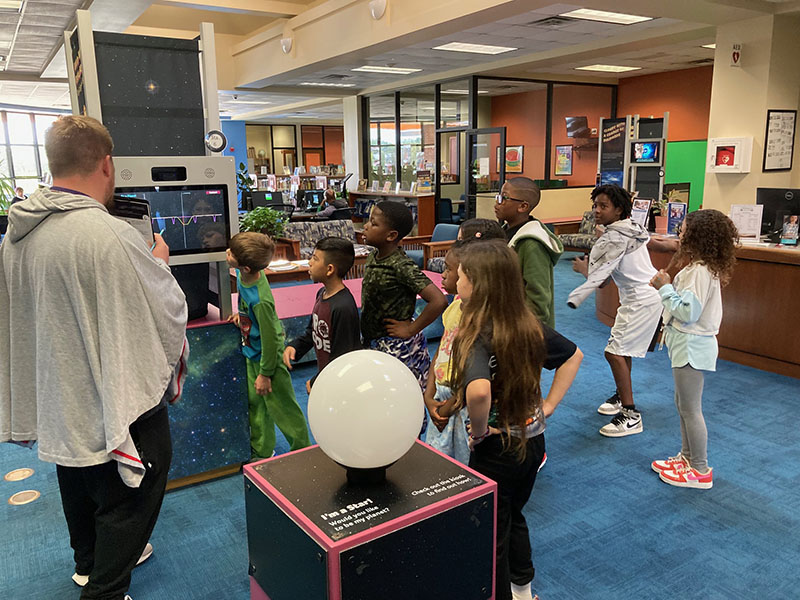
Discover Exoplanets 2.0: The Search for Alien Worlds
Discover Exoplanets brings the excitement of exoplanets (planets outside our solar system) and NASA’s Universe of Learning to rural and underserved communities by providing with a traveling exhibition that explores space and astronomy, covering topics such as the search for habitable worlds, how NASA scientists are searching for these worlds, and how they may be like our own.
PI: Stephanie Vierow-Fields
Funder(s): NASA Science Activation
Start Date: 2022
STEM Tales
The STEM Tales project is a partnership between Twin Cities Public Television, T 2 Science and Math Education, American University’s School of Education, and the Space Science Institute to investigate the effect of media read-alouds by diverse scientists and engineers on STEM and literacy learning in young children and their interest in STEM careers.
PI: Katie Hessen
Funder(s): NSF
Start Date: 2022
From Our Town to the Moon, Mars, and Beyond
This library exhibit and professional development project is working with public libraries across the country to help engage a broad cross section of the public in the NASA Artemis program: the return of humans to the moon, with an eye towards Mars.
PI: James Harold
Funder(s): NASA
Start Date: 2021
Phase 3 of the STAR Library Education Network: STEAM Equity
The project vision is for participating rural communities to empower tweens and their families around equitable STEAM learning and career paths by leveraging their existing strengths, interests, and diverse cultures.
PI: Anne Holland
Funder(s): NSF
Start Date: 2020
We are Water
We are Water brings a traveling exhibit and interactive programs to rural, Latinx, and Indigenous communities in the Four Corners Region of the United States and engages community members in conversations about their personal and community connections to local water topics. The project is led by the Education & Outreach program at the University of Colorado's Cooperative Institute for Research in Environmental Sciences in partnership with the Space Science Institute.
PI: Claire Ratcliffe Adams
Funder(s): NSF
Start Date: 2020
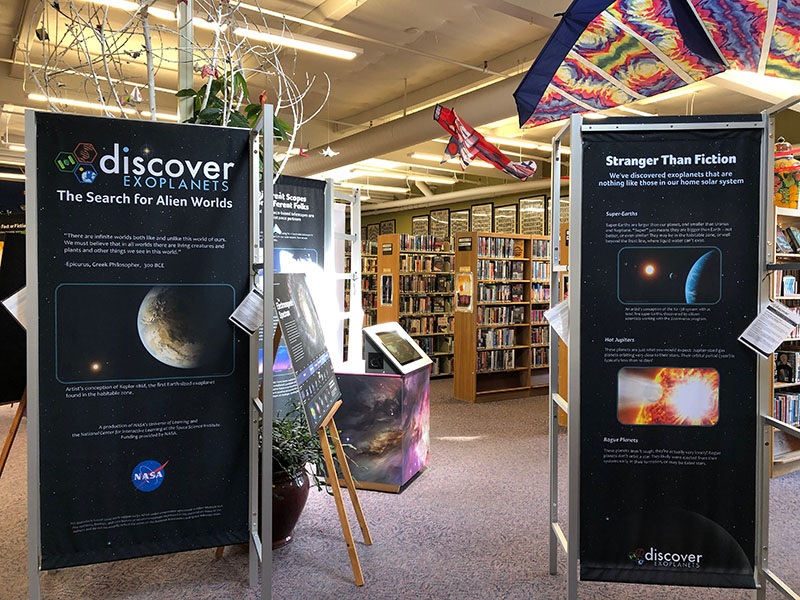
Discover Exoplanets: The Search for Alien Worlds 2018-2022
This project aims to help public libraries and small museums to become better partners, through the shared experience of the Discover Exoplanets exhibition.
PI: Anne Holland
Funder(s): NASA Science Activation
Start Date: 2018
Project BUILD
The overarching aim of Project BUILD is to better understand how youth’s learning preferences or dispositions relate to their STEM learning experiences. It also seeks to build community members’ capacity through Community Dialogues to inspire and educate youth about STEM careers.
PI: Paul Dusenbery
Funder(s): NSF
Start Date: 2017
NASA@ My Library Phase 1 and 2
NASA Science Mission Directorate education objectives support the Nation’s education efforts to improve science literacy and to inspire the next generation of scientists and engineers. One institution that can accomplish both of these outcomes, for people of all ages and in every region of the country, is our public library system – the central focus of the NASA@ My Library project.
PI: Anne Holland
Funder(s): NASA Science Activation
Start Date: 2015
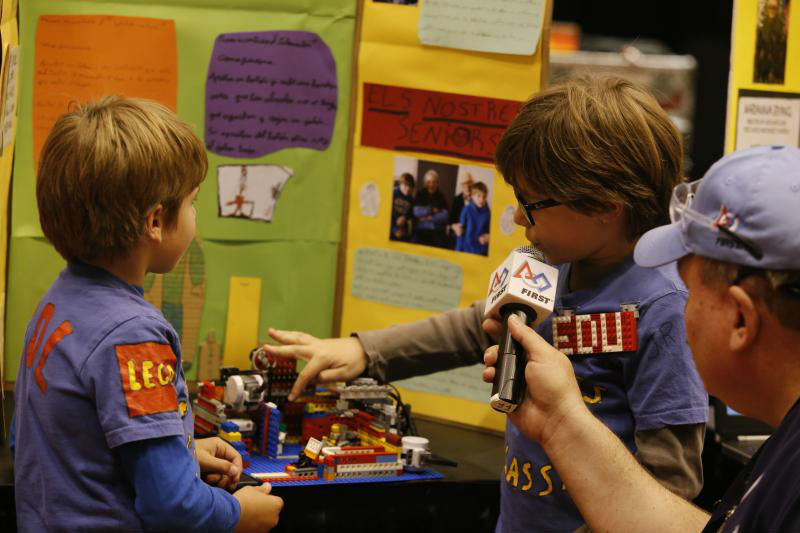
Junior FIRST LEGO League
NCIL, FIRST Robotics, and the LEGO Foundation have have formed a partnership to establish a sustainable Junior FIRST LEGO League (Jr.FLL) program in 20 libraries nationwide. The LEGO Foundation has contributed $50K in materials. With the low costs associated with running the Jr.FLL program, libraries are an excellent avenue for reaching children (ages 6-9) in all types of communities, but especially those where resources are limited.
PI: Paul Dusenbery
Funder(s): Internal Funds, LEGO Foundation
Start Date: 2014
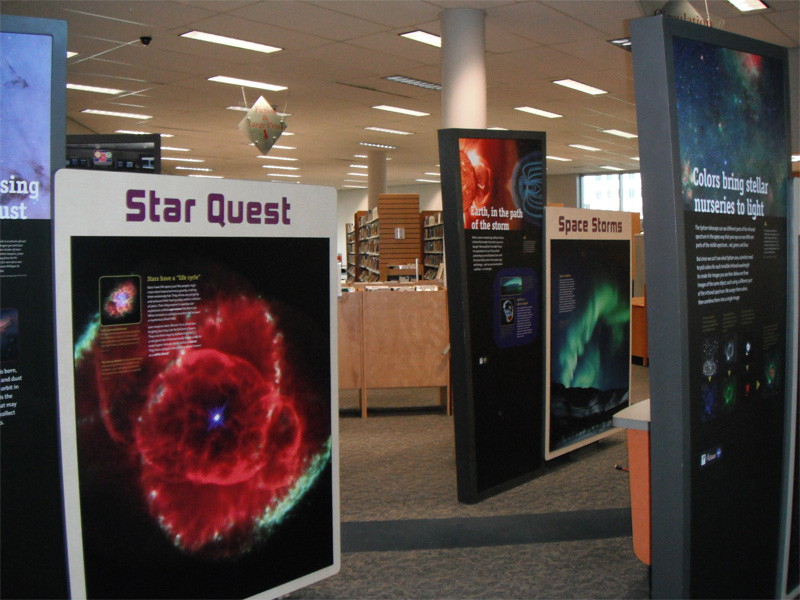
Discover Space
The Discover Space exhibit was built with funds from the Space Weather Outreach project. Exhibit areas include Space Storms and Star Quest. In 2009-2011, Discover Space toured libraries in Colorado, giving local communities (many in underserved locations) an opportunity to experience space science using interactive displays. Discover Space is currently being enhanced (adding comets and asteroid content) and renovated, and will begin a tour of several libraries in 2014.
PI: Paul Dusenbery
Funder(s): Internal NCIL Funds
Start Date: 2014
Discover Health
Discover Health (DH), a bi-lingual health education program for public libraries, directly addresses the nation’s most serious public health issues, especially among underserved and rural populations. It also encourages youth, especially those from at-risk communities, to pursue careers in health care professions.
PI: Paul Dusenbery
Funder(s): National Institutues of Health
Start Date: 2014
STAR Library Education Network Phase 2
Phase 2 of STAR Net featured a refurbishment of the original Discover Earth and Discover Tech exhibitions, and added a space themed exhibition (Discover Space). These exhibits traveled to over 30 rural venues across the US.
PI: Paul Dusenbery
Funder(s): NSF
Start Date: 2014

Discover Exoplanets Pilot
In this pilot program, kiosks with the JPL Eyes on Exoplanets and SSI Planet Families software were installed in libraries, museums, and visitor centers across the country.
PI: Anne Holland
Funder(s): Jet Propulsion Laboratory
Start Date: 2014
Making Space Social
This Facebook game teaches users about stellar and planetary evolution. The game features a sporadic play model, similar to the format of popular games like Farmville, Mafia, and Mousehunt. It allows players to continue to progress, even if they only spend a few minutes a day on the game. The project will examine how the informal education community can utilize these types of games to teach basic STEM concepts.
PI: James Harold
Funder(s): NSF, NASA
Start Date: 2011
STAR Library Education Network Phase 1
The STAR Library Education Network: a hands-on learning program for libraries and their communities, (STAR_Net for short) developed two comprehensive, informal education programs: Discover Earth and Discover Tech.
PI: Paul Dusenbery
Funder(s): NSF
Start Date: 2010
Planet Families
This simulation was originally created for the Alien Earths exhibit (www.alienearths.org). Using a real physical model, it allows visitors to build their own solar system, and then watch as their planets and stars interact. It even includes asteroids and comets. Planet Families will be installed on a multi-user touch table at several science centers as part of NASA's Year of the Solar System (http://solarsystem.nasa.gov/yss).
PI: Paul Dusenbery
Funder(s): NASA
Start Date: 2010
Open Exhibits
Open Exhibits is a 3-year project that will develop, test, and disseminate a free suite of original, multi-touch enabled, open source exhibit software components. The software enables science centers and museums to do something very few of them have been able to do in the past: assemble their own interactive computer-based exhibits and online interactive resources. Software is available at www.OpenExhibits.org
PI: Kate Haley Goldman (Co-PI)
Funder(s): Ideum/NSF
Start Date: 2010
Discover Earth Research Project
The purpose of the project is to develop, implement, and evaluate several innovative geoscience education technologies (spherical and multi-touch flatscreen) that will be tested in a library setting. The project is exploring what kinds of social networking technologies work best to build an ESS library community of practice (CoP) and is producing several resources and activities that librarians can use to enrich the exhibit experience. Results will be disseminated through NCIL's STAR_Net project.
PI: Paul Dusenbery
Funder(s): NSF
Start Date: 2010
Great Balls of Fire: Comets, Asteroids, and Meteors
Great Balls of Fire is a museum exhibition program including two versions of the exhibit: 3,500 square feet and 1,500 square feet. The exhibits include 3 major themes: Origins of our Solar System, The Story of Asteroids and Comets, and Impacts and Risks. Both exhibits also include the interactive Asteroid Encounter where guests climb into an asteroid shaped pod and blast off into the Solar System to study comets and asteroids.
PI: Paul Dusenbery
Funder(s): NSF, NASA
Start Date: 2009
Finding NEO
The Finding NEO project produced both a website ( www.killerasteroids.org ) and a small exhibit focusing on comets, asteroids, and the role of backyard astronomers in asteroid research. Activities available on the site include a Google-Earth powered interactive that lets you explore the damage that would be caused by an asteroid landing on your own house, a risk comparison activity, and a physics-based asteroid deflection game.)
PI: James Harold
Funder(s): NASA, NSF
Start Date: 2009
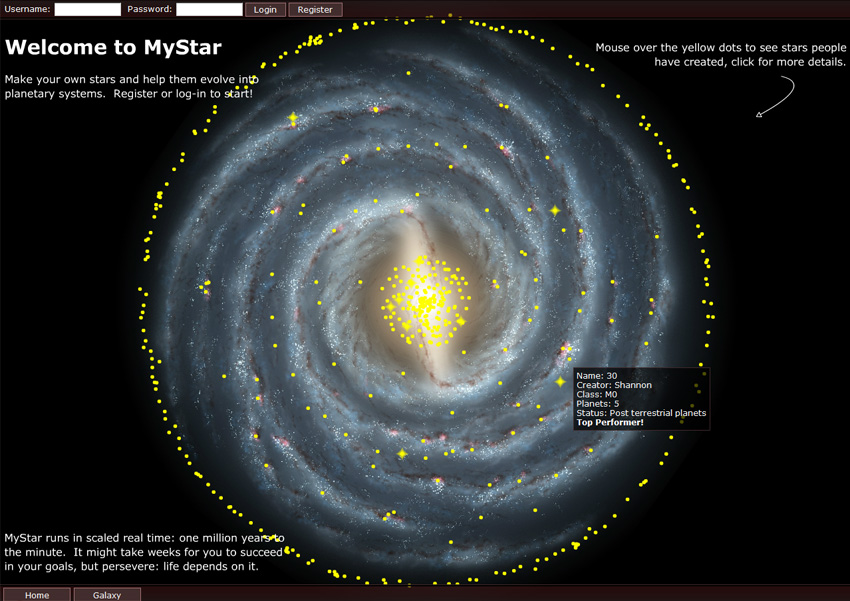
MyStar
This game is closely aligned with the national science standards, and was designed to introduce players to the basic concepts of stellar and planetary evolution. Players can form their own star, then observe and study it as it evolves in scaled real time (a millions years per minute). Over the course of days or weeks, players can receive email or text message prompts as their star and accompanying planetary system enter new phases.
PI: James Harold
Funder(s): NSF, STSCI
Start Date: 2007
Alien Earths Online
Alien Earths was a 3,000 square foot traveling exhibition that is now retired. Alien Earths Online is still going strong. The website features games like Planet Families where you can try your hand at designing the perfect solar system and includes MyStar, a stellar lifecycle game where users can build solar systems at a Million Years A Minute.
PI: Paul Dusenbery
Funder(s): NSF, NASA
Start Date: 2005
Giant Worlds: A Journey to the Outer Solar System
In the Giant Worlds traveling exhibition, visitors explore the extraordinary giant planets orbiting our Sun and learn what they tell us about the formation of solar systems, our planet, and the conditions necessary for life. The Giant Worlds exhibit includes three distinct areas: Family of the Sun, Meet the Giants, and New Frontiers. The exhibit also includes a website that features information and simulations relating to giant planets and links to NASA missions to the outer Solar
PI: Paul Dusenbery
Funder(s): NSF, NASA
Start Date: 2004
MarsQuest Online
A partnership between TERC, SSI, and NASA's Jet Propulsion Laboratory, MarsQuest Online provides website visitors with a wide range of activities that incorporate imagery and data from spacecraft orbiting Mars and rovers on the surface (e.g. Spirit and Opportunity). Specific activities contrast Earth and Mars, familiarize people with Martian features, probe questions related to searching for life, and examine what it means to travel to Mars and drive a rover across the surface.
PI: James Harold
Funder(s): NSF
Start Date: 2003
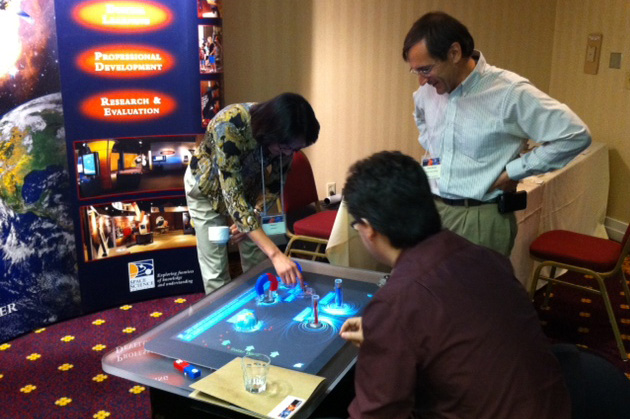
Space Weather Outreach
The major components of the Space Weather Outreach Project are the Space Weather Center website and the Discover Space exhibit for libraries and science centers. SWO includes the development of the Space Weather Experience for the Microsoft Surface platform. The Surface is a multi-touch table that can recognize objects placed on it. This device will be marketed to science centers and planetariums. SWO also includes educator workshops and a partnership with BrainPoP (www.brainpop.com).
PI: Paul Dusenbery
Funder(s): NSF, NASA
Start Date: 1999
Space Weather Center Website
The SWC website (www.spaceweathercenter.org) was updated in 2008 and features educational games that are fun and easy to use by the general public or by teachers who want a fun way to incorporate space weather and solar system science into their classroom activities. It is part of NCIL's Space Weather Outreach project. All pages of the SWC website have been fully translated into Spanish to allow even more children and families access to education materials.
PI: Paul Dusenbery
Funder(s): NSF, NASA
Start Date: 1999

